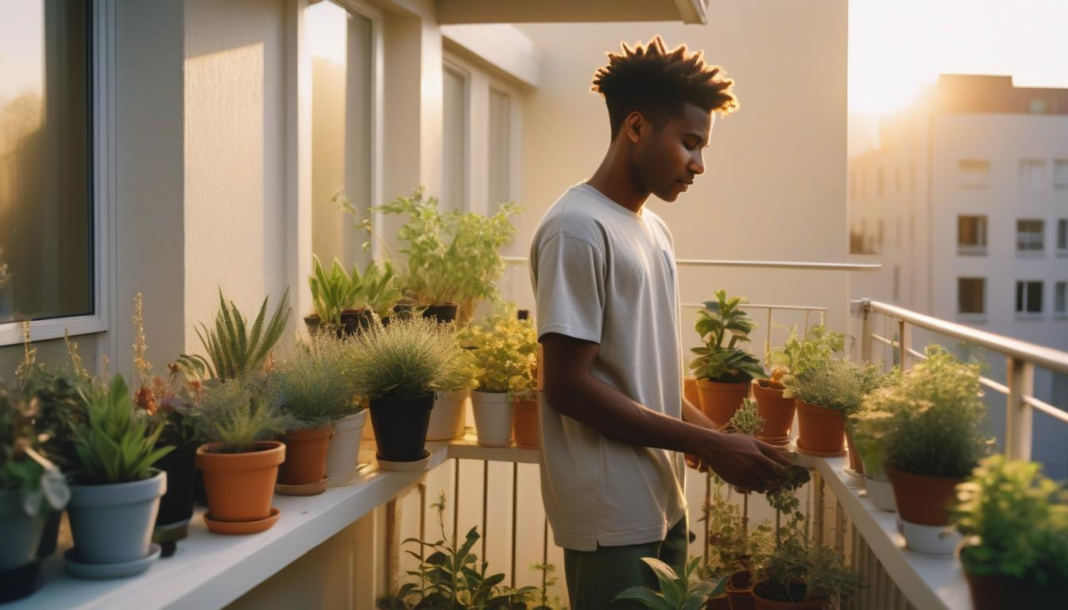Grow Fresh Vegetables on Your Small Balcony – Easy & Space-Saving Tips
Imagine plucking fresh, juicy tomatoes or crisp lettuce leaves right from your balcony to add to your salad. Sounds delightful, doesn’t it? Even if you live in an apartment with limited outdoor space, you can grow your own vegetables and enjoy the satisfaction of homegrown produce. In this guide, we’ll show you how to turn your small balcony into a thriving vegetable garden with easy, space-saving tips. Let’s dig in!
Why Grow Vegetables on Your Balcony?
Growing vegetables on your balcony isn’t just a trend; it’s a rewarding way to connect with nature, save money, and enjoy fresh, organic produce. Plus, it’s a fantastic way to make the most of limited space while adding a touch of greenery to your home.
Step 1: Choose the Right Vegetables
Not all vegetables are suited for balcony gardening. Here’s a table to help you pick the best ones for small spaces:
| Vegetable | Container Size | Sunlight Needs | Time to Harvest |
|---|---|---|---|
| Tomatoes | 5-gallon pot | 6-8 hours of sun | 60-80 days |
| Lettuce | Shallow container | 3-4 hours of sun | 30-60 days |
| Peppers | 3-gallon pot | 6-8 hours of sun | 60-90 days |
| Spinach | Shallow container | 3-4 hours of sun | 40-50 days |
| Radishes | 6-inch deep pot | 4-6 hours of sun | 25-30 days |
Step 2: Maximize Space with Smart Layouts
Small balconies require creative solutions to maximize space. Here are some ideas:
- Vertical Gardening: Use wall-mounted planters, trellises, or hanging baskets to grow upward.
- Tiered Shelves: Arrange pots on shelves to create layers of greenery.
- Rail Planters: Attach planters to your balcony railing to free up floor space.
Step 3: Select the Right Containers
Choosing the right containers is key to successful balcony gardening. Consider these options:
- Fabric Pots: Lightweight and breathable, perfect for root health.
- Self-Watering Pots: Ideal for busy gardeners who may forget to water.
- Upcycled Containers: Use old buckets, wooden crates, or even plastic bottles for a budget-friendly option.
Step 4: Provide Proper Care
Growing vegetables on a balcony requires attention to their needs. Follow these tips:
- Watering: Balcony plants dry out faster, so water regularly. Use a watering can with a long spout for precision.
- Soil: Use high-quality potting mix with good drainage.
- Fertilizing: Feed your plants with organic fertilizer every 2-3 weeks.
- Pest Control: Inspect plants regularly for pests and use natural remedies like neem oil.
Step 5: Harvest and Enjoy
There’s nothing more satisfying than harvesting your own vegetables. Here’s how to do it right:
- Timing: Harvest vegetables when they’re ripe but still tender.
- Technique: Use clean scissors or pruning shears to avoid damaging the plant.
- Storage: Store harvested vegetables in a cool, dry place or use them immediately for maximum freshness.
FAQs
What are the easiest vegetables to grow on a balcony?
Lettuce, radishes, and spinach are some of the easiest vegetables for beginners.
Can I grow vegetables on a shaded balcony?
Yes! Leafy greens like spinach and lettuce thrive in partial shade.
How do I protect my balcony vegetables from pests?
Use natural remedies like neem oil or introduce beneficial insects like ladybugs.
Conclusion
Growing fresh vegetables on your small balcony is not only possible but also incredibly rewarding. With the right plants, containers, and care, you can enjoy a bountiful harvest right outside your door. Start small, experiment, and soon you’ll be savoring the taste of homegrown goodness!
Found Interesting? Check out our Blogs on Balcony Gardening and get growing today!

